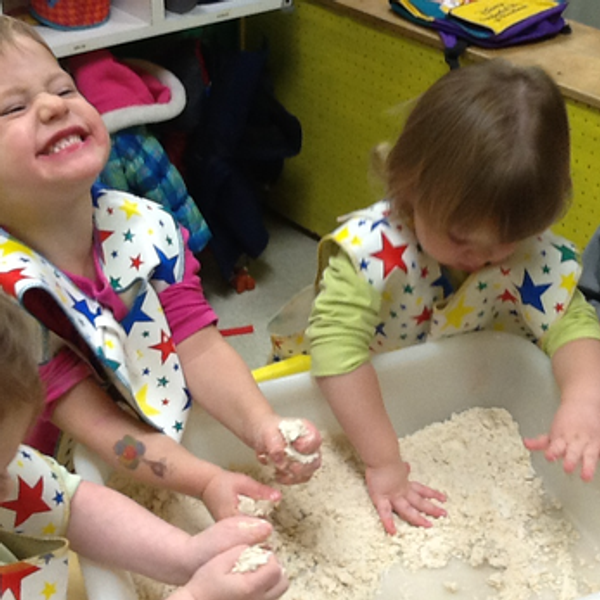Let me tell you, I have had some pretty crappy jobs. Never in my life would I think that my job working with juvenile delinquents would be my absolute favorite.
I worked at a juvenile probation office for eight months. My job title was "Work Crew Supervisor," which meant that when the kids were assigned service hours, I took them to their work location and kept them on task and reported back to their probation officers. They would be doing jobs like sorting cans at food pantries or sweeping and mopping floors at fire departments.
And during that eight months, I learned so much about teenagers, myself, and society as a whole. (Yes, watching kids mop floors really did get that deep.)
1. Yelling doesn't work.
I only made this mistake once. This kid was absolutely out of control. I screamed at him so loudly that the other kids jumped. But it didn't affect him one bit. Then it occurred to me: everyone in this kid's life screams at him on a daily basis.
2. Teenagers are given no credit.
Some of the people that worked at the places we volunteered talked to these high school kids like they were five. They would ask me questions about the kids and how they got on probation, and then would tell me about how sad it was. Sad? These are kids. They have their whole life ahead of them. If we can show them that they can achieve better things if they work hard enough, we won't have to be sad at all!
3. There are some crappy parents out there.
I cannot tell you how many parents just straight up forgot to pick up their kids for hours. These kids told me stories that just broke my heart. Some of these kids were simply trying to make ends meet for themselves because their parents just weren't doing anything for them. There's a story behind every "bad kid."
4. Adults think they know everything. (And they don't.)
The number of times that one of the people that worked where we volunteered tried to have a talk with my kids about how to "change their ways" is too stinkin' high. I heard speeches that included anything from "Just stop being so selfish," to "We all break the law; do it smartly." Excuse me, what advice did you just tell a juvenile delinquent? Just shut up. As soon as you talk down to them, they aren't listening to you anyway. And when they are, as soon as we walk out the door, they look at me and say, "That guy was so stupid, wasn't it hilarious?" These kids know why they are in trouble. They need someone to show that they care, not a sermon from a know-it-all.
5. Sexism is REAL.
One man who worked where we volunteered referred to me as "sorority girl," another constantly reminded me that I wasn't being hard enough on my juveniles, and another literally looked me up and down and said, "Are you even old enough to do this job?" However, only one of my actual juveniles said anything sexist to me. He told me he didn't need to take orders from me because I was a woman. Immediately, another kid spoke up and said, "Dude, what are you even saying?"
6. STOP TELLING KIDS THAT THEY ARE "BAD" OR "STUPID."
If you take nothing else from this article, take this.
Kids soak up everything that you say to them, whether you realize it or not. When you tell a kid that they are a "bad kid" or "stupid," the kid associates with that label. That means that when one of my juveniles throws bleach on another kid while we are working, and I ask, "Why did you do that?" the kid says, "Because I'm a bad/stupid kid." They use it as an excuse that they genuinely believe to be true. When you tell a kid that they are bad or stupid, you are telling that is who they are, and that is something they cannot change. They accept that they are just a bad or stupid kid and continue to make bad decisions. They think you've lost hope in their ability to change, so they lose hope in themselves.
7. Respect goes both ways.
I was often criticized at my job for being too nice to the juveniles and for talking with them rather than simply giving orders. But when I treated my kids with respect and talked to them as equals, I never had to yell. They listened to what I had to say and did as I asked without struggle. Some of them even invested personal information in me that they did not tell even their probation officers. What some people often forget is that teenagers, even juvenile delinquents, are still people. They deserve to be treated as such.
8. ALL kids need encouragement.
This means even the kid that shoplifted. Or the kid who vandalized a school. Or the kid who was on drugs. All of them. We need to show kids, especially those who are having a tough childhood, that we support them and want them to achieve their goals. I would always make a conscious effort to ask juveniles what their favorite subject was in school or what they wanted to be when they grew up or if they thought about college or the military. If we give them something to work toward, they're less likely to end up repeating their offense cycle.
This job opened my eyes to some terrible people, but also some amazing kids who have the ability to change our world for the better. But only if we help them get there.





















